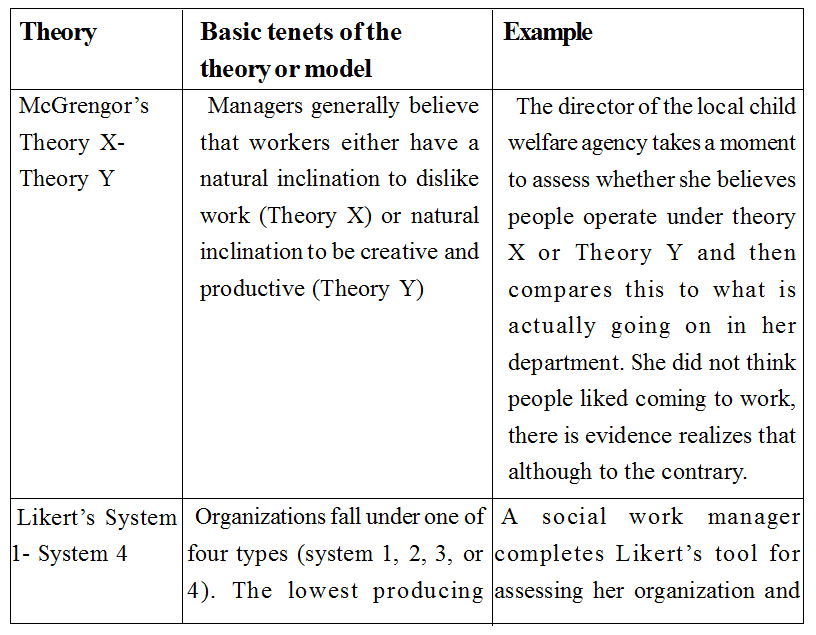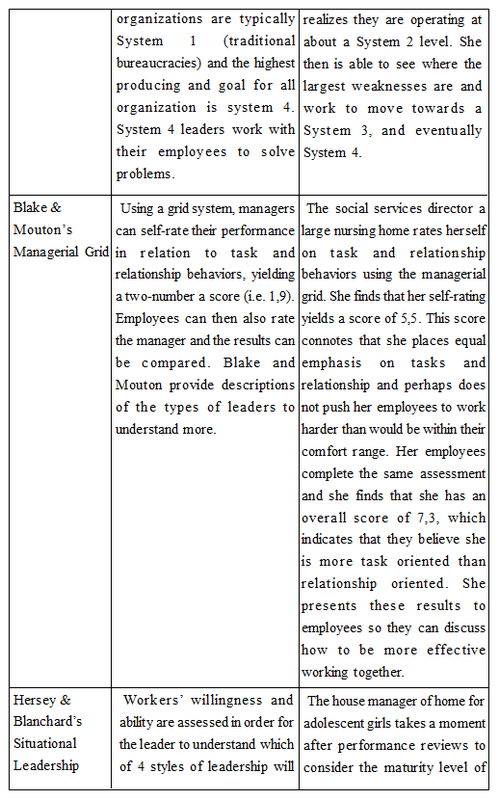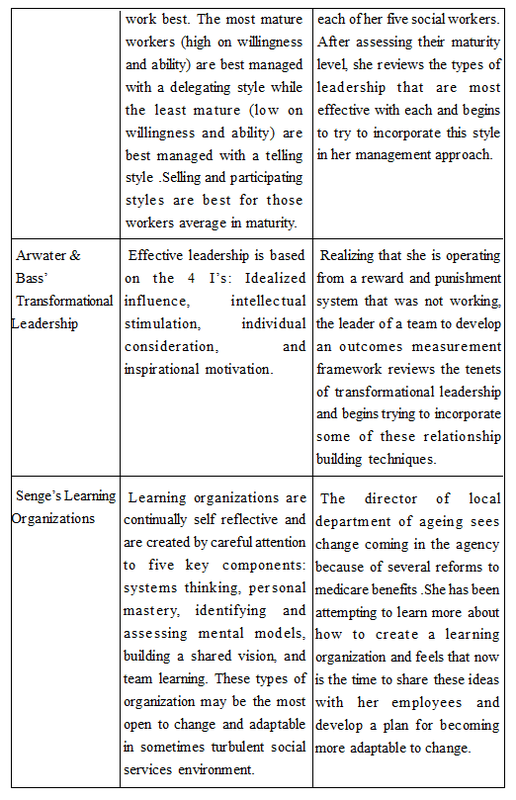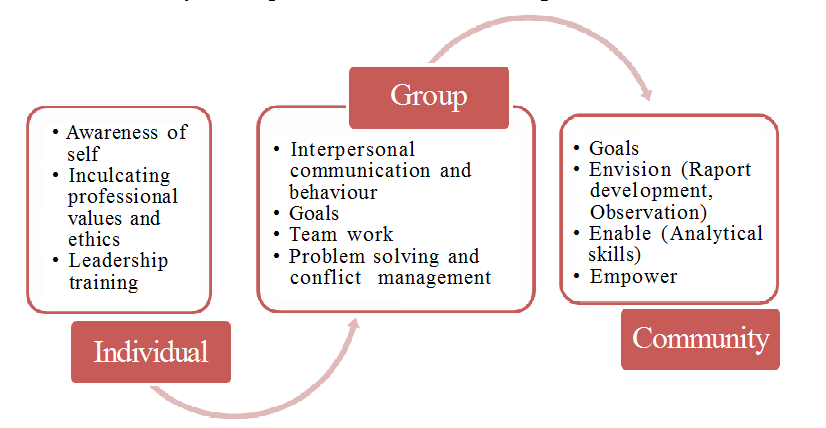|
The main inspiration for the introduction of the formal training for social work come to this country from the West, especially the United States, when the first training institute was established in 1936 under the directorship an American. The program of education has basically three components: classroom courses, research project and field work. The objectives of professional education currently are to prepare the type and quality of man power capable of performing the professional tasks and functions currently being performed by variety of organizations employing social workers. Due to current political and economic changes which directly influenced on daily lives of people, contemporary social trends may prove more long-lasting than those of either political and economic nature .As a result, governments are likely to seek new approaches for dealing with human services, most acutely by welfare leaders in those developing countries in which population growth exceeds their capacity to satisfy even basic needs. Acting in cooperation with their governments, social welfare specialist will need to give leadership to the development of new public/ private partnership in the provision of human services. In social work profession social workers are particularly qualified to provide leadership on critical issues. The foreignness of social work education is so much all – inclusive and pervasive as reflected in its basic organization, curricula and the teaching material that most social work graduates fail to pursue careers in professional social work. Moreover existing training does not prepare them to assume roles of leadership in planning, formulation and implementation of social welfare programs at different level of practice and administration. Indian social work educators must accept this challenge and forge a new strategy to transform the existing social work education to develop and use indigenous study material. In this paper the researcher wants to emphasis on the importance of professional leadership in social work profession. It will focus on the role and scope of a leader. The paper highlights on the wider perspective of leadership in social work profession. Key words: Social Work Education, Leadership, social issues Social Work - A Profession: Social work as a helping activity had been a part and parcel of our culture from the beginning. There were inbuilt systems in our society to render these services to the needy. Various approaches have been adopted in the social work helping process. Gore (1965) has identified fives approaches to social work in India: - The religious traditional approach - The liberal reformist approach - The secular missionary approach - The ethical revolutionary approach - The professional social work approach The professional social work approach commenced in the second quarter of the 20th century. In India, imparting training in professional social work started with the establishment of the first social work institute in 1936. The description of professional social work is that it is basically a helping activity to help a person in need. Training in social work has no doubt developed from its infancy stage in late 30s and early 40s. But the extent of professionalism among social workers and the societal acceptance of the profession are debatable. There has been varying viewpoints, on a continuum, with regard to social work as a profession, starting from “it is not a profession” to “it is a profession.” “Education is not for knowing more but for behaving differently” – Jhon Ruskin said this in the general context of education. But this applied more to helping professions, particularly the social work profession. Social work profession that evolve from the tradition of charity and concern for others long ago still continues to struggle for acceptance of its professional status social work profession is perhaps one of the most confused professions with a variety of issues and levels of interventions, different clients and administrative settings for practice which has further compounded the dilemma (Siddiqui, 1999). England (1986) captures the situation aptly: “if I imagine social work as an entity I see it as a curiously puzzled and confused body. There are parts rushing off in all directions and sometimes falling over each other in the process. They are rushing to be busy and to be engaged, for to be busy and engaged is to feel assured that something worthwhile and important is being done and social workers deal with problems that cannot humanely be neglected.” The profession which initially focused on individual, group and community as the major clients could not make much of an impact particularly in less developed and developing societies due to mass poverty, unemployment and illiteracy. Social Work Education: The II UGC review committee on social work education (1980) therefore emphasized that social work education should address the larger issues such as poverty, illiteracy, unemployment etc. the committee identified two categories of social work tasks: (1) developmental and (2) remedial and rehabilitative. However, the committee did not clearly define the developmental tasks and also assumed that the two can be combined. Siddiqui (2000) elaborated the developmental tasks “as those of the catalytic agent for developing and or modifying current policies/ services/ institutional structures: educating people to recognize their inherent capacities for action and to identify the policies/ institutional and socio-political structures that exploit them…” The capacity of social work profession or for that matter any other profession to undertake the task of rebuilding the society and to replace or modify the existing macro structures is going to be very limited. It is strange to note that when medical profession hardly consider “Health for All” as its primary goal or educationist are not professionally committed to the goal of “Education for All” or the law profession does not lay any major emphasis on social justice as its professional objective the social work profession should consider these and many other such macro issues within the exclusive domain of the profession. Gore (1981) rightly observed that “no single profession can expect to cover the whole area of social policy and social development expertly.” Social Work and Societal Needs: Whitemain (1972:31) has also pointed out that social work must reflect a “sharpening recognisation of these societal needs, dimensions and complexities which demand from social work profession- in correct with other service professions and occupations- new perspectives, new knowledge and new understanding of these compelling societal force.” Unfortunately, despite the expiry of about six decades since its birth in India, social work is still branded as ‘ a new and emerging profession’ (Kulkarni 1994:25), simple because it could not make itself socially relevant and failed to provide effective services with professional competence to its clients. Mandal (1989:309) has observed: “social work education in India has become irrelevant to the needs of Indian society because what is needed in Indian society is primarily preventive and micro base social work.” Indian society has been increasingly becoming more and more complex, particularly because of closer contacts with the outside world which has been converted into a global village and rapid advancements in sciences and technology. In such a social set-up social work professionals will be facing a number of serious challenges from various quarters and will have to struggle hard even for their basic survival. Contemporary social work practice is increasingly becoming complex and challenging. Social workers are engaged in working with society’s most vulnerable, disadvantaged and deprived sections of the population who require help with a multiplicity of needs. The situations and needs requiring social work intervention could be intra-personal, inter-personal, inter-group or inter-organizational. Those could also be psychological, social, economic, environmental or a combination of these. While some client’s have the most difficult and complex needs, other needs close support. In India, social work practiced in a variety of settings and in many organisations by those who often cannot be included within the current framework of trained social workers. Even in the absence of formal training, many do bring in, and practice varying degrees of natural ability and experiences, akin to practicing trained social workers. Social Work Leadership Definition: Leadership is the capacity to work creatively, constructively, and effectively with individuals, families, groups, organizations, and communities to promote social justice, catalyze social change, and address individual and social problems. Leaders accomplish this by inspiring vision, offering direction, and supporting individual and collective action in order to obtain mutually valued results. Leadership Elements: 1. Self-Knowledge: The ability to demonstrate the professional use of self in practice, including the capacity for self-examination, insight and self-awareness. Monitor the effectiveness of one’s own professional practice through the appropriate application of research techniques and evaluation methodologies. Understand and acknowledge the profession’s mission, values, ethnic principles, and ethical standards and practice in a manner consistent with them. Understand the importance of continued professional renewal. 2. Critical & creative thinking: Apply critical thinking skills within the context of professional social work practice. Use theoretical frameworks supported by empirical evidence to understand development, behavior and interactions across a life span. Analyze and formulate social policies. Evaluate social work research and apply it to practice. 3. Effective communication: Understand the various modalities of communication and how contextual factors impact the effectiveness of communication with individuals, families and groups. Use verbal and non-verbal communication skills differentially with client populations, colleagues and communities. Employ communication skills to establish and maintain a relationship of mutual respect, acceptance and trust with other students, colleagues and clients. Share thoughts, ideas and feelings effectively in discussions, meetings, field placement and presentations with diverse individuals and groups. Demonstrate proficiency in oral and written communication designed to affect change in clients, groups, organizations, communities and society in the interest of social and economic justice. 4. Respect & inclusion: Practice with respect, knowledge and skills related to clients’ age, class, color, disability, ethnicity, family structure, gender, marital status, national origin, race, religion, sex and sexual orientation. Validate and enhance assets and capacities for all client systems and communities, particularly diverse populations and disadvantaged, vulnerable or oppressed groups. Respect and promote the right of clients to self-determination and assist clients in their efforts to identify and clarify their goals. Develop an understanding of their own personal, cultural values and beliefs as one way of appreciating the importance of multicultural identities in the lives of people. 5. Moral courage: Understand the value base of the profession and its ethical standards and principles and practice accordingly. Recognize the forms and mechanisms of oppression and discrimination and apply strategies of advocacy and social change. Various Studies on Social Work Leadership: Gary Yukl (2006) defines leadership as “the process of influencing others to understand and agree about what needs to be done and how to do it, and the process of facilitating individuals and collective efforts to accomplish shared objectives” (P. 8). Peter Northbuse (2007) defines leadership as “a process whereby an individual influences a group of individuals to achieve a common goal” Influence is very essential in leadership. Having influence means that there is a greater need on the part of leaders to exercise their influence ethically. Some people are natural leaders, endowed with certain traits like ability to speak well, an extroverted personally height viewing leadership as a process implies that leadership is a phenomenon that is contextual and suggests that everyone is capable of exercising leadership. Leadership in social work have been recently revitalized by the Council on Social Work Education and its leadership initiative CSWE has recognized the need for leadership development both inside of and external to social work education (sheafor, 2006). When organisation commissioned an exploratory study to investigate leadership context in curriculum only 74 syllabi were receiver from 36 different institutions representing 6.8% of all accredited social work programs (Lazzari,2007) of the syllabi received, most were from MSW programs with a macro concentration. The author recommends further study of leadership in the social work curriculum and new models of developing social work leaders. A study by Jagadeep S Chhokar ‘Leadership and culture in India: The globe research Project ‘. He mentions that leadership is very popular issue in India. Mohandas Karamchand Gandhi is without doubt the most important leader of the 20th century who has shaped the destiny of modern India. His unique leadership style shows Materialistic weaknesses and spiritual and political strengths. He is referred to as the “Father of the Nation” due to his signal contribution to the Indian freedom movement against the British rule. His concept of Satyagraha (literal translation meaning “insistence on truth”) has found a permanent place in the industrial relations scenario in India as a common method of protest by unions and dissatisfied employees. It often takes the form of the employees sitting down and refusing to move unless their demands are met or satisfactory negotiations are concluded. Gandhi’s statues are found in almost all cities and towns, roads and public buildings are often named after him, his birthday is observed as a national holiday, and his philosophy and teachings are invoked on numerous public occasions, though very little of it is followed in practice. Culturally specific phenomenon such as personalized and dependency relationship, power distance, care consideration and familial attachment were found to affect leadership practices. In his research during focus groups and semi structured interview described that outstanding leaders in social work are Ela Bhat, Medha Patkar, Sunderlal Bahuguna. Bargal and Schmid (1989) provide social workers with the insight to some of the trends in leadership research outside of the social work arena. They identified several themes in leadership, including : “the leader as a creator of vision and a strategic architect”(P.40); “the leader as the creator (and Changer) of organizational culture” (P. 41); “Leadership and followership” (P.42); and transactional and transformational styles of leadership (P.43). The authors applied these trends in leadership to three typical internal functions of social work administrators. (Goal setting, motivation and development of human resources and maintenance and administration) & two of the external functions (resource mobilization and achievement of legitimacy) Rank and Hutchison (2000) provided some empirical evidence regarding social work leadership in their exploratory study of social work leaders. Result of the study indicated that respondents included five elements in their conceptual definitions of leadership pro-action (thinking ahead) values and ethics, empowerment, vision and communication. Most respondents (77%) believed that social work leadership is different than other professions for five common reasons: Professional commitment towards code of ethics, systematic perspective, a participatory leadership style, altruism, and concern about the public image of the profession. (Rank and Hutchison, 2000 p.493). Nine general areas of skills for leadership identified and believed were necessary were : community development skills, communication and interpersonal skills, ethical reasoning skills, risk taking skills, cultural competence/diversity skills, analytic skill, technological skills, political skills, visioning skills. 21th century social work mission identified by respondents on four main themes: political advocacy, a clear definition for the profession itself and for the public, social reconstruction, and vision. Respondents agreed that there should be leadership development at the bachelor’s, master’s, and doctoral level of social work education. This study provides evidence that social work leaders see leadership development as essential for social workers and the profession as a whole, and that this area may be overlooked. The authors recommend future research regarding “outcomes of social work leaders and their styles of leadership” (p.500). Glission (1989) found that social workers evaluate leaders on maturity, power, and intelligence. Further he found that there is a strong relationship between three dimensions and both organizational commitment and job satisfaction of social workers. This finding gives further credence to the importance of leadership and worker performance. Glisson reports that leadership development is missing in the social work curricula. Leadership Theories Strategies: 1. Inclusion of Leadership course: As we recognizing that leadership is the process and our profession immensely required leaders to solve the social issues. Social work education and curriculum must emphasis on systematic leadership development by introducing Leadership course /subject. This is the need of time to show the professional practice effect. This subject allied with capacity building workshop will definitely show result in developing exact good social engineers. There is also need to conduct various studies to asses the leadership development in social work education. 2. As social workers are working at three levels and each level required leadership, so continuous training will be effective to develop professional leadership. Following training parallel to field work would be helpful for trainee social workers to develop their skills. Such capacity building training can be implemented constantly throughout the course with specific time interval. 3. When students are working with NGO’s for field work training, many NGO’s does not appointed professional social workers. It affects on practice learning of trainee social workers. NGO’s treat the trainee social workers as a human source to complete their surveys. They are least bothered about students are implementing theory into practice or not. Agency supervisors always busy with their own schedule and cannot concentrate on systematic learning of students. Due to this environment in NGO’s we find very few students are able to develop professionalism and leadership after completing two years field work. In such situations Tilak Maharashtra Vidyapeeth, Department of Social Work invent an ‘Issue Based Field Work’ practice in 2009 which is more leadership oriented than traditional practice. In this field work a group of around 10 to 12 students’ works on one issue, here they independently plan their field work as per the needs they found in their base line work in form of mini surveys and literature review. While implementing the planning in the field students come across various unread cases, groups or some time community issues. Students deal with these issued using the primary methods are case work, group work and community organization accordingly. They also implement secondary methods of social work especially research. Through this field work they reach outnumber of peoples and vulnerable groups. Students initiate many creative activities or programs and actively participated in advocacy. Student also covers many setting of social work and develop network at various level in this field work. Students work recognized by bureaucrats and invited student to work with them. Due to this innovative field work department is able to develop their own projects with various settings of social work.
References: 1. Devi Rameshwari and Prakash Ravi, (2004), Social Work Methods, Practices and Perspectives, Mangal Deep Publication, Jaipur 2. Devi Ranjna K, (2009), Social Work Education and Action, Omega Publications, New Delhi 3. Dr. Shaikd Azahar Iqbal, (2005), Principles and Practices of Social Work, Sublime Publications, Jaipur 4. Dr. Subhedar Iqbal, (2011), ‘Indigenous Fieldwork in Social Work’, Current Publication, Agra 5. Katare P. M., (2007), Training for Social Work, Arise Publishers, New Delhi 6. Singh Krushna Kant& Singh Ram Shankar, (2010), Encyclopedia of Social Work in 21st Century, ABD Publishers, New Delhi 7. Singh Surendra, Shrivastava S. P., (2003), Social Work Education in India Challenges and Opportunities, New Royal Book Co. Lucknow Ketaki Gokhale Asst. Professor, Department of Social Work, Tilak Maharashtra Vidyapeeth, Pune, Maharashtra, 9423035805, [email protected] Geeta Joshi Asst. Professor, Department of Social Work, Tilak Maharashtra Vidyapeeth, Pune, Maharashtra, 9420425263, [email protected] |
Categories
All
Social Work Learning Academy50,000 HR PROFESSIONALS ARE CONNECTED THROUGH OUR NIRATHANKA HR GROUPS.
YOU CAN ALSO JOIN AND PARTICIPATE IN OUR GROUP DISCUSSIONS. MHR LEARNING ACADEMYGet it on Google Play store
|
SITE MAP
SiteTRAININGJOB |
HR SERVICESOTHER SERVICESnIRATHANKA CITIZENS CONNECT |
NIRATHANKAPOSHOUR OTHER WEBSITESSubscribe |
MHR LEARNING ACADEMY
50,000 HR AND SOCIAL WORK PROFESSIONALS ARE CONNECTED THROUGH OUR NIRATHANKA HR GROUPS.
YOU CAN ALSO JOIN AND PARTICIPATE IN OUR GROUP DISCUSSIONS.
YOU CAN ALSO JOIN AND PARTICIPATE IN OUR GROUP DISCUSSIONS.
|
|










 RSS Feed
RSS Feed





